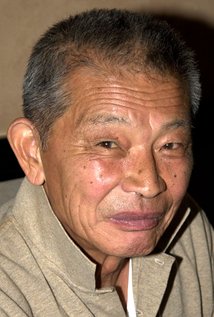
Mako
Birthday:
10 December 1933, Kobe, Japan
Birth Name:
Makoto Iwamatsu
Height:
163 cm
Born in Japan, Mako was living there with his grandparents while his parents studied art in the United States, when Japan and the U.S. went to war in 1941. His parents remained in the U.S., working for the Office of War Information, and, at the cessation of the conflict, were granted U.S. residency by Congress. Mako joined his parents in New York a...
Show more »
Born in Japan, Mako was living there with his grandparents while his parents studied art in the United States, when Japan and the U.S. went to war in 1941. His parents remained in the U.S., working for the Office of War Information, and, at the cessation of the conflict, were granted U.S. residency by Congress. Mako joined his parents in New York and studied architecture. He entered the U.S. Army in the early 1950s and acted in shows for military personnel, discovering a talent and love for the theatre. He abandoned his plans to become an architect and instead enrolled at the famed Pasadena Community Playhouse in California. Following his studies there, he appeared in many stage productions and on television. In 1966, he won an Academy Award nomination as Best Supporting Actor for his first film role, as the coolie Po-Han in The Sand Pebbles (1966). Only occasionally since have his roles reached the level of his talents, but he has worked steadily in feature films ever since. He appeared on Broadway in the leading role in Stephen Sondheim's "Pacific Overtures" and he co-founded and served as artistic director for the highly-acclaimed East-West Players theatre company in Los Angeles. After a long battle and illness from cancer, he passed away on the twenty first of July in 2006, at the age of 72. He was survived by his wife, Shizuko Hoshi, who co-starred in episodes of M*A*S*H (1972), as well, and his children and grand-children. Show less «
On the barriers that Asian-American actors have to face in Hollywood: "I go into a young film director's office these days and he says, 'Hey...Show more »
On the barriers that Asian-American actors have to face in Hollywood: "I go into a young film director's office these days and he says, 'Hey man, I know who you are. I grew up watching McHale's Navy (1962)'. And I think, 'Oh boy, here we go again'". Show less «
Of course we've been fighting against stereotypes from Day One at East West. That's the reason we formed: to combat that, and to show we are...Show more »
Of course we've been fighting against stereotypes from Day One at East West. That's the reason we formed: to combat that, and to show we are capable of more than just fulfilling the stereotypes -- waiter, laundryman, gardener, martial artist, villain. Show less «
I was a very happy child, so to speak. But, since we didn't have video games or television, and very little radio, in terms of a form of ent...Show more »
I was a very happy child, so to speak. But, since we didn't have video games or television, and very little radio, in terms of a form of entertainment, I used to read a lot and I would draw a lot, and those two things used to occupy my time. Show less «
I had no idea how difficult Sondheim's music would be. All through the rehearsals, I kept flubbing. There were so many tempo changes. I coul...Show more »
I had no idea how difficult Sondheim's music would be. All through the rehearsals, I kept flubbing. There were so many tempo changes. I could never get through the opening number without any mistakes. One day, I went up to Hal Prince and offered to leave the show. He laughed it off. He said, 'Don't be silly. That's why we have tryouts.' Show less «
No matter what happens, we couldn't let people say Asian-American actors can't act.
No matter what happens, we couldn't let people say Asian-American actors can't act.
I came to America to become an architect. And somewhere along the line while I was still in school, I was lured into theater, and that's how...Show more »
I came to America to become an architect. And somewhere along the line while I was still in school, I was lured into theater, and that's how I became interested in theater. My first play was something called 'A Banquet for the Moon.' It was a weird play. Show less «
NEXT PAGE

Akiro 'The Wizard'

Mr. Yamaguchi

Jimmy

Admiral Isoroku Yamamoto

Sakamoto

Mr. Kojima

Kanemitsu

Kungo Tsarong

Splinter

Uncle Iroh

Aku

Li Sung

Dr. Yosh Takahashi

Dr. Lin Tam, Li Han, Lt. Hung Lee Park, Major Choi












